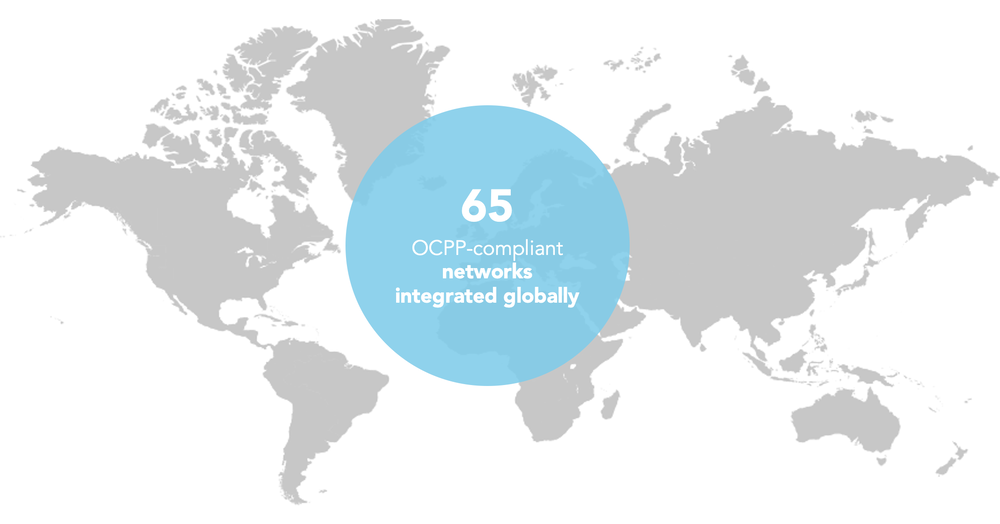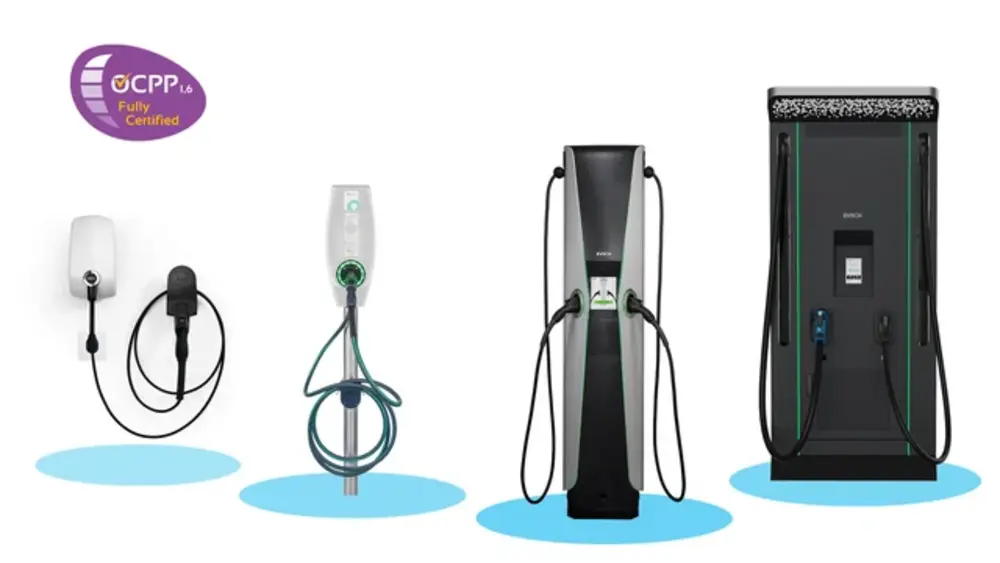
Products
Fast, Reliable, Everywhere

Solutions
Efficient, Innovative EV Charging Solutions.
We have officially stepped into the age of electric vehicles (EVs). The global automotive landscape is shifting rapidly toward electrification, with EV sales surging to unprecedented levels. In 2022 alone, electric vehicles represented approximately 14% of global new car sales, an impressive leap from the previous year's 9%. This momentum is expected to continue well beyond 2023, marking a definitive shift towards sustainable mobility.
Consequently, businesses and public establishments worldwide are rapidly investing in EV charging infrastructure. Yet, while the physical charging stations often take center stage, the software behind these chargers is equally crucial and frequently overlooked.

To ensure your EV infrastructure investment remains future-proof, businesses must consider the long-term flexibility and adaptability of the charging technology they adopt. This is precisely why compliance with the Open Charge Point Protocol (OCPP) is essential.
OCPP, or Open Charge Point Protocol, is an open-source standard that facilitates seamless communication between EV charging hardware and software solutions. Essentially, OCPP ensures that charging stations and management software from different brands can interact effectively, providing a flexible and interoperable EV charging environment.
OCPP is supported by industry leaders worldwide, representing the gold standard for interoperability in electric vehicle charging. Being part of the Open Charge Alliance, major manufacturers have embraced OCPP to provide customers with optimal flexibility.
Choosing charging infrastructure that adheres to the OCPP standard provides significant long-term benefits. When charging stations are OCPP-certified, they offer enhanced flexibility, allowing businesses to avoid getting locked into proprietary hardware or software. This protects your investment by ensuring compatibility with multiple service providers, enabling you to adjust your infrastructure according to your evolving needs.
For businesses planning to deploy EV charging stations, prioritizing flexibility is critical. EV charging solutions typically combine hardware and software. While hardware is responsible for physically charging the vehicle, network software manages aspects such as user authentication, billing, energy consumption monitoring, and load balancing.
Many EV charging station manufacturers tie their hardware exclusively to their own software platforms, limiting customer options. This may initially seem convenient but can become restrictive if the software fails to meet expectations or prices increase significantly.
Fully OCPP-compliant hardware and software, however, grants users the freedom to choose or switch software providers easily. Businesses gain the ability to select the software that best fits their particular use case, ensuring optimal cost-efficiency and functionality.
Some EV charging companies market themselves as “OCPP-compliant,” yet only their software works with third-party hardware—not the other way around. Truly OCPP-compliant solutions ensure both hardware and software are independently interoperable.

Full interoperability lets charging station owners select among various network software providers, empowering them to choose solutions based on specific criteria like cost, features, and performance. This competitive landscape incentivizes providers to continually innovate and improve, ultimately benefiting consumers.
Investing in OCPP-compliant charging infrastructure safeguards your business against technological obsolescence. If you're unsatisfied with your current software provider or discover a more appealing alternative, switching platforms becomes straightforward without requiring a full hardware replacement.
Think of this interoperability as similar to changing your mobile carrier while keeping your existing phone. You don't need a new device; you just switch the SIM card. The same flexibility applies to EV charging when adopting OCPP-compliant equipment.
Moreover, continuous competition among OCPP-compliant providers encourages technological innovation and helps maintain competitive pricing.
Charging equipment providers who adopt OCPP standards typically support multiple network software vendors, granting businesses extensive choice and flexibility. Companies like EVBox integrate seamlessly with numerous global software providers, enabling effortless deployment and operation in diverse environments.
With OCPP-compliant solutions, businesses can quickly scale their charging infrastructure. As demand grows, you can add additional stations or switch software providers without compatibility concerns. This scalability ensures your investment adapts to evolving market dynamics, protecting your ROI.
Interoperable solutions allow businesses to negotiate better rates and service terms with software providers. If pricing becomes unfavorable, you can switch vendors without the cost of purchasing new hardware, ensuring long-term cost-effectiveness.
